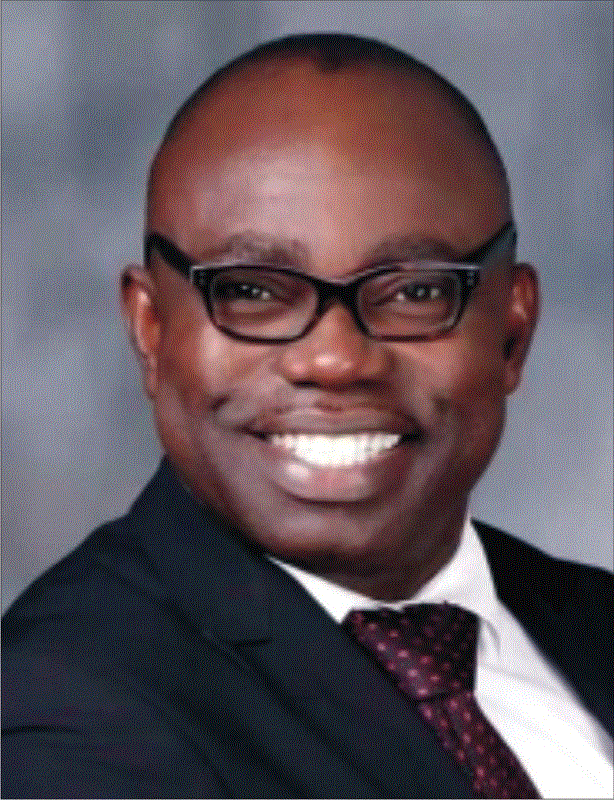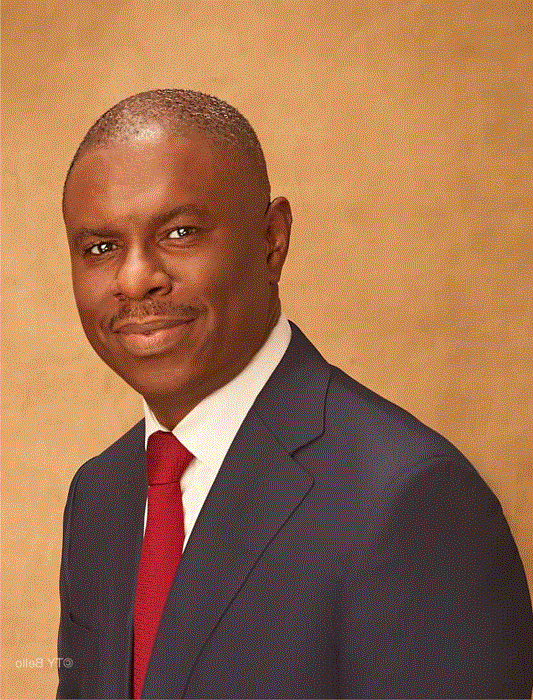Women Leadership In Political Parties In Nigeria: How Effective?
By: Nimi Thom-Manuel
In Nigeria the startling statistics of women’s performances at every poll at elections are something that need to be addressed seriously and urgently too. Rwanda has nearly conquered this problem of gender parity, recording 40% women representation in their Parliament, South Africa has 50% women in the Cabinet.
Women leadership in political parties is a very important issue as regards remediating women’s hopelessness in every political party power-sharing processes. These women leaders are the entry points or gate-keepers in political parties and so are very strategic for women participation in politics. Unfortunately, most of the women who had held the position so far had failed the women as they have not adequately represented the women well. This is one of the reasons why women have often recorded abysmal results at every elections. At the last concluded elections the story is not different. Only 7 (seven) women out of 109 composition in the Senate and about 36 women out of 360 at the House of Representatives made it at the polls. This is way down from what obtained at the previous elections. In Rivers State no woman in the State House of Assembly, one woman Deputy Governor, three Commissioners out of 23. These scores can never make for good representation for women in politics even in another generation if steps are not taken to correct the trend.
The role of women leadership in political parties is not well conceived by the occupiers of those positions. There is therefore the urgent need to illuminate on what actually a woman leader in a party should busy herself on and so make the position worth-its-while for women’s progress in the political development and empowerment of the teeming and willing female political population who remain perpetually on the back seats in the political boats.
I shall not bore my readers on the definition, the theories, its attributes or factors of leadership as these are numerous. Equally too the role of women leaders in political parties are multi-faceted. They include but not exhaustive the following, mobilization, advocacy for woman issues, help in legislation of women issues, raising funds for women political participation, economic empowerment of women, involve in peace process in the party, environment protectors, collaboration with other stakeholders, monitoring and evaluating programmes for women development and participation in politics.
Women leaders in political parties it has been discovered have only been able to accomplish just ONE of the myriads of functions in the leadership of their organizations. They are still GREAT MOBILIZERS we agree. But mobilization is just one of the functions of leadership in a political party. These women busy themselves on mobilizing women for the benefit of men who are aspiring to hold great political positions.
Please show me one woman leader who had mobilized for women to gain political position. None is the answer. Again women leaders in this country busy themselves in cheering men into positions of authority, cook their food and make them (the men) generally comfortable. Women leaders should know that their role of mobilizing is also to position women who deserve to sit on positions of authority in the party and by extension in their power-sharing in the polity of the country. Women leaders are gate-keepers and must change their dance steps and see that if women don’t record successes in the polls they are to be blamed in the main. It shows they have not done their home-work. They are therefore very ineffective in their role and responsibility in the party.
Women leaders must be the pioneers of advocating for women which are numerous for example, power sharing in the party and placement of deserving women in decision making positions from Local Government Area, State and at the National level, and welfare of women in the party.
She must not work alone. She must work with other women organizations or seasoned women leaders in the state- that is, network with them to achieve women’s goals and purposes in the country. Here the Women Affairs Ministry both at the national and state levels must join hands with the women leaders like the NCWS, the great umbrella for women organization in Nigeria to boost women issues.
Being the egg-head of women participation in parties, the women leader must with the help of other organizations, like FIDA, women Lawyers, National Council of Women Societies (NCWS) and other vibrant women organizations to push those debilitating laws and cultural practices that harm women’s development for legislation in the State Houses of Assembly. She must make sure more women are voted in the State Houses, of Assembly and at the National Assembly. By so doing, it is obvious women’s issues when brought to the Houses of Assembly for debate will make easy passage in their deliberations.
Another role of a woman leader in the party is to make sure her organizes programmes for raising funds for effective women’s participation in politics. We are all aware the men have a way of supporting ach other financially and otherwise but women lack this aspect of working for other women to succeed. This is a habit the new woman leader of this post millennium must imbibe in her and transmit same across her followers. If she can built a critical mass of women who believe in her and her drive to pursue this process to a desired end, women will record great success at the poll. This is doable. If men can do it why can’t women do the same?
We are all too familiar with the way and manner the men go about empowering their fellow men. There is a male commissioner in one state who made his male Personal Assistant a commissioner in that same State. Can you beat that? Can women leaders do that? This habit is not common with women. Perhaps because women would argue they are not all too rich to empower their fellow women. This is true to some extent. But if women leaders can formulate programmes and projects using their parties as platforms, this goal could be achieved easily. If proposals on economic empowerment of women are well written, well-articulated and forwarded to the party hierarchy, I am sure if six proposals are sent across, the chances are that two or three of these proposals will scale through. This will no doubt empower a crop of women who are well positioned contest in any elections.
Development can only come when there is PEACE in any organization. The woman-leader in a party is also called upon to make or build peace in the various sectors of the party with her team of followers. Most times the gladiators (male of course) in the party fight themselves out leaving the women and their issues to the back burner. Women leaders must initiate peace building amongst warring factors in the party. Believe me if women leaders are able to take up this role effectively in their parties, ‘they will not only be respected but will also be given what is due to them effortlessly. Women must not go taking sides when there are factions in the party. They should be mediators only.
Women leaders in the political parties must not restrict their activities to only political matters. They must go beyond politics and see to their ailing environment. A woman leader must engage her followers in clean- up exercises around their party, state, etc. If there are oil spillages and toxic wastes in their environment they must be part of the solution to such problems in their localities. This makes them to be recognized persons in the community all the time and would be called up for other or higher responsibilities in the community.
As a matter of obtaining absolute effectiveness to pursuing women’s issues to the front burner, there must be necessarily a tripartite arrangement, the Governor’s wife, the Ministry of Women Affairs and woman leader. The three must work together on the various programmes and projects.
The woman-leader who is the grassroots person, that is, the nearest to the women could set the agenda for programme formulation. She will first of all identify the women’s problems. She then formulates the programme which will be brought to the notice of the wife of the Governor and the Ministry of Women’s Affairs for discussion. With these three working together with one voice and committed to changing the hopeless situation of women, they can achieve a lot in the shortest possible time. They say there is strength in collectivity and two heads are better than one. Any of the programmes could be initiated by any of the three persons mentioned above. The bottom line is if the trio could work committedly they will not be any friction amongst them. Each will need the other to let the boat sail to shore.
With these numerous roles and assignments given to the woman leader of a party, with the help of a few of her followers they must endeavor to monitor and evaluate these projects and programmes periodically to assess the rate of success of each programme and adjust with new strategies whenever to obtain maximum result.
From the foregoing you will also agree with the fact that some of our women leaders in the political parties have neither the traits of leadership nor the knowledge of the totality of the functions of leadership in the party. We had painfully observe that most of these women leaders had obtained the positions for their selfish interest. I can vividly cite a woman leader in one state of the federation who had no bicycle tyre to her name before emerging as a woman leader of a party. But within a year of assuming the position she was able to acquire four cars including a Jeep, built houses in the state capital and looking very opulent that you would think she had held the position for many years. She was so uneducated to a ridiculous point.
On the score board she had never promoted one woman beyond the cheering and cooking food for men in the party. This is very unfortunate for the women leadership we are advocating for. We don’t have grouse over any woman uplifting herself in the course of her duty but WHAT WE SAY, HAVE YOUR VOICE AND LET YOUR FOLLOWERS HAVE THEIR VOICE TOO”. Some of them alienate themselves from their followers after some months, only needing the women when it is time to mobilize for the men at the next round of elections.
In concluding, women leadership in political parties is critical and must be seen as a great opportunity for rendering a service to the improvised, ejected, dejected and voiceless women in the community.
In summary therefore, the woman leader in a political party is a rallying point for women, a mobilizer, an advocate for women issues, a voice for women in the party, and a kingmaker for women. She is also a fund raiser for woman in politics, a bridge between the women and the party hierarchy, an educator, a peace builder a protector of her environment, and a monitor and evaluator of programme and projects for women development.
The position is not a gold-mine for women to extract at the expense of other women. At the end of a tenureship a woman leader she must be able to boast of or parade an array of women she had empowered economically, politically and otherwise. This is how effective women leadership could be gauged from now on. It is also the only way women can build critical mass of empowered women in the country which invariably will record women’s successes at the polls and make their leadership effective.
The road to women leadership according to Kouzes and Posner (1987) is that these women must challenge the process, that is, find the areas that need to be improved for woman. They must inspire a shared vision, enable others to act. Model the way and encourage women in all possible way to get their foothold in the electoral machine. This is the only way forward! Let’s get cracking with the job! This is the time.
Nimi Thom-Manuel is a social critique in Port Harcourt



